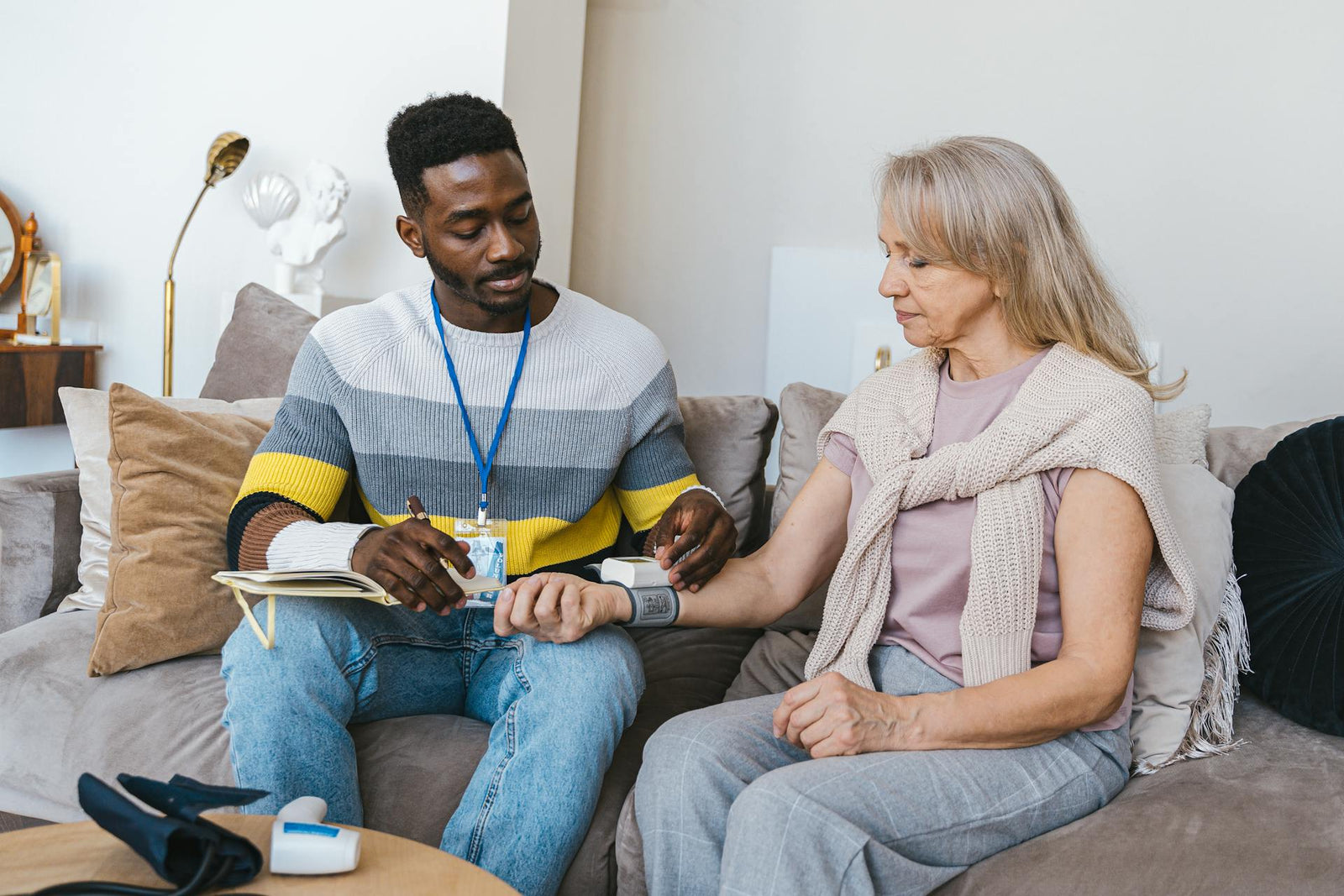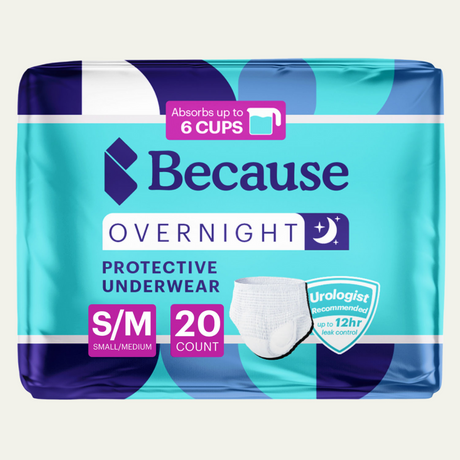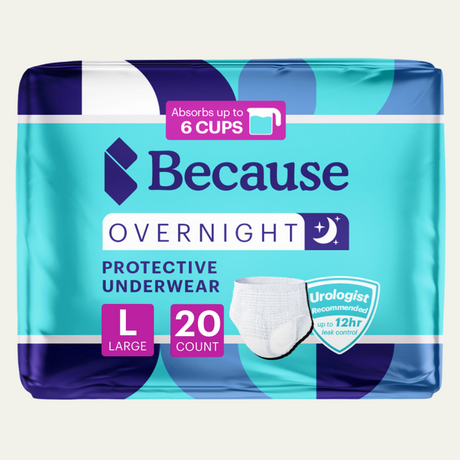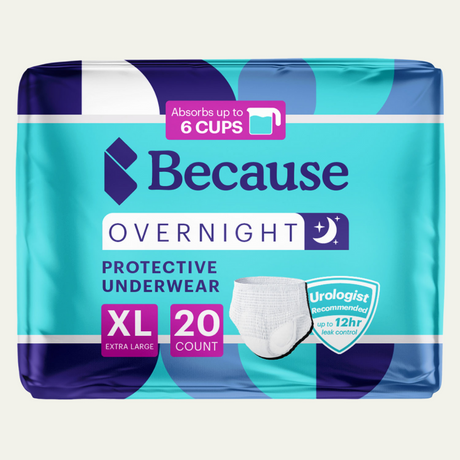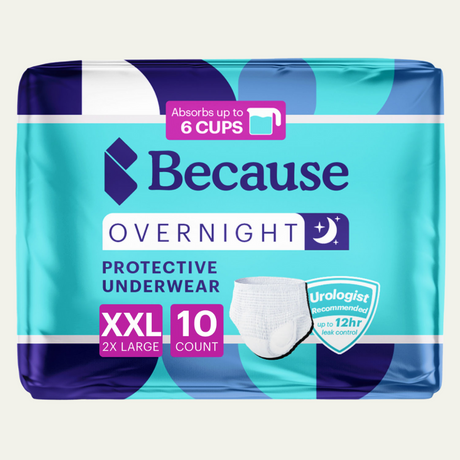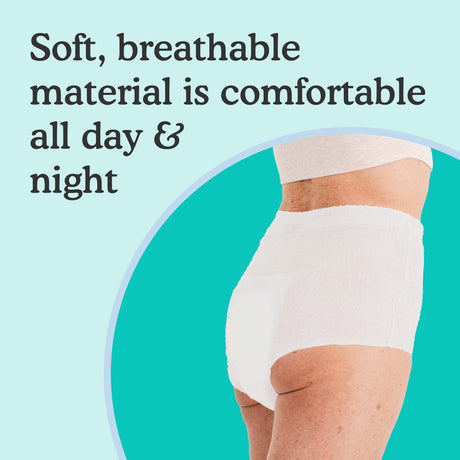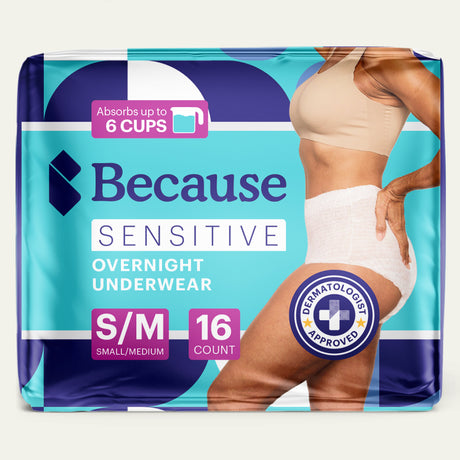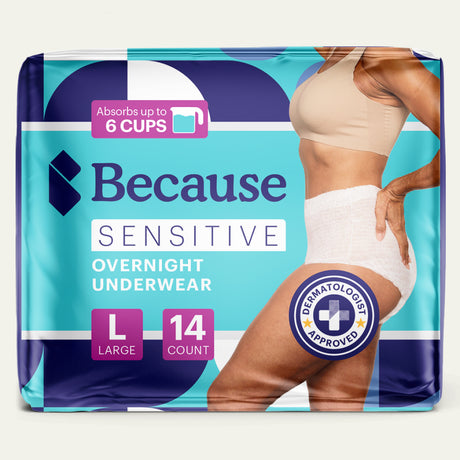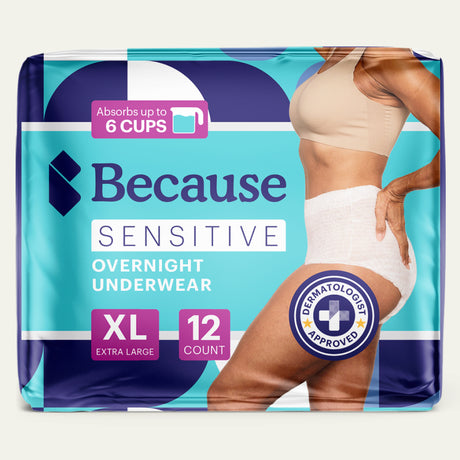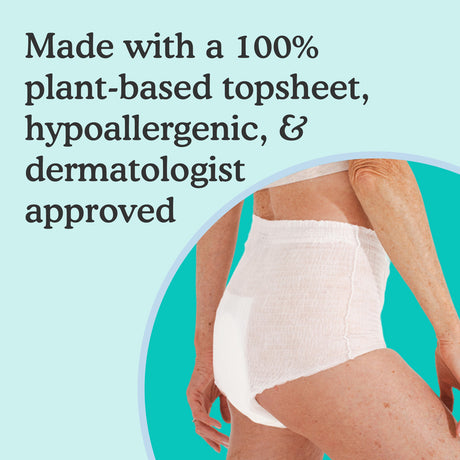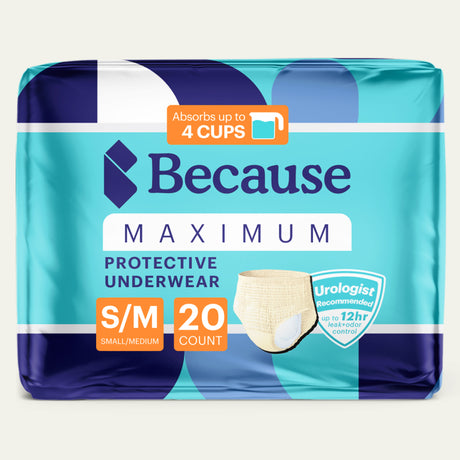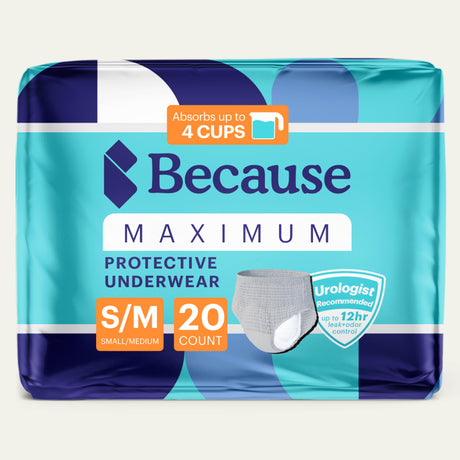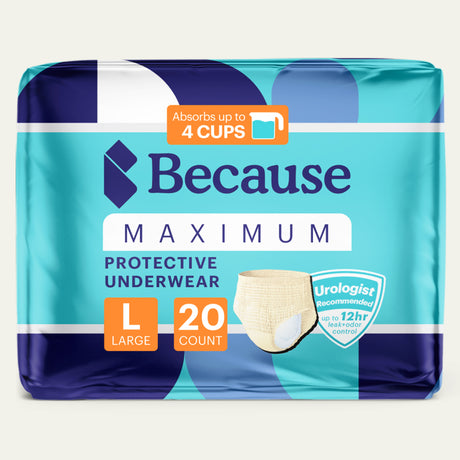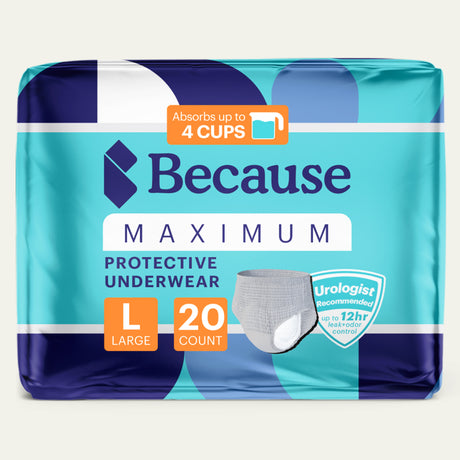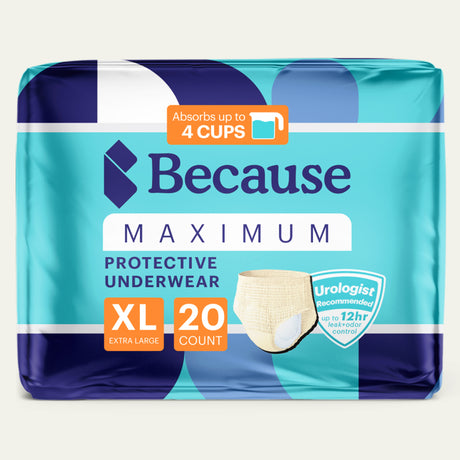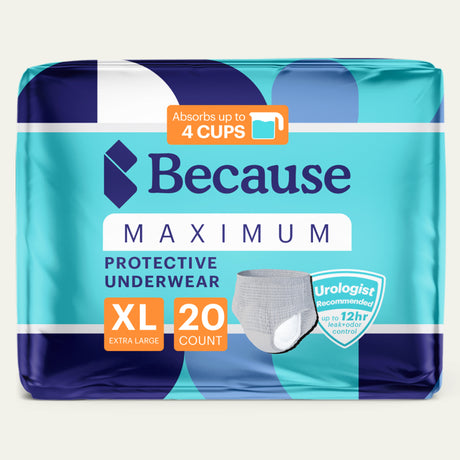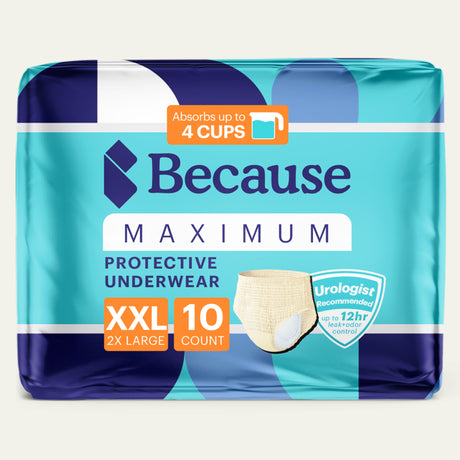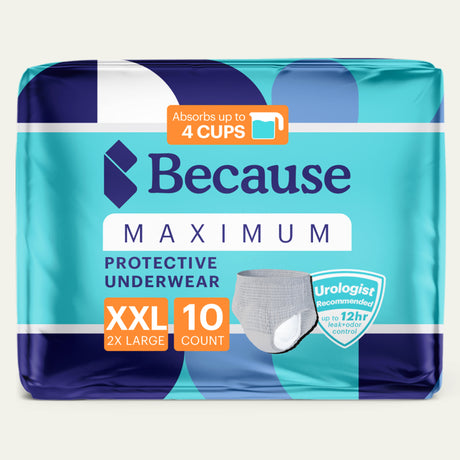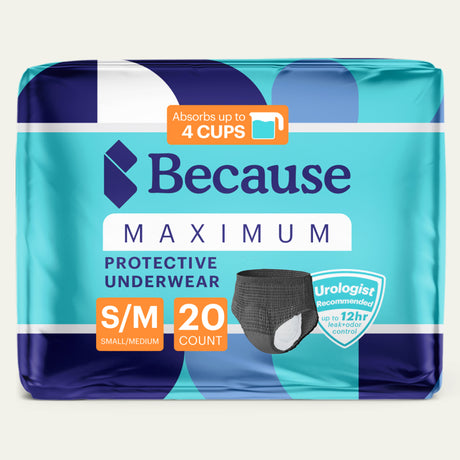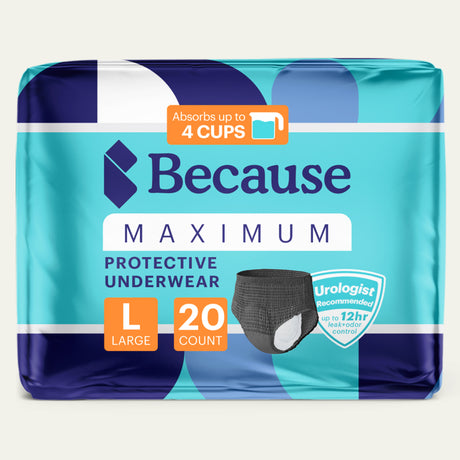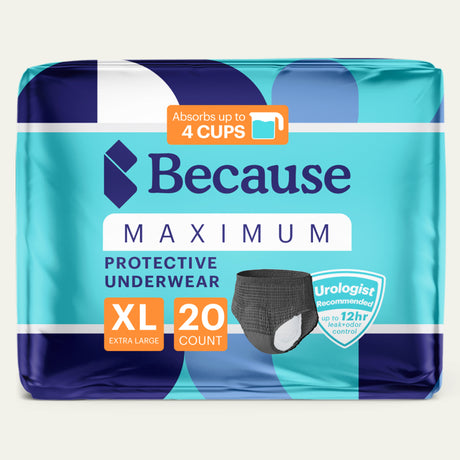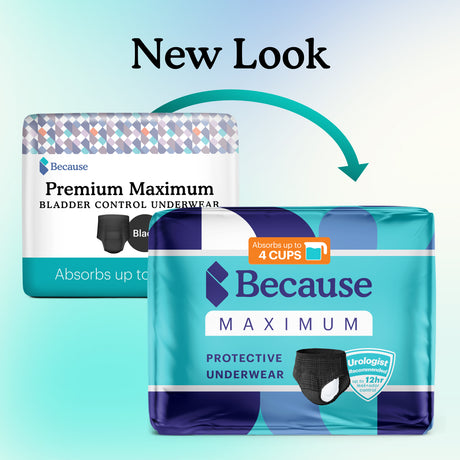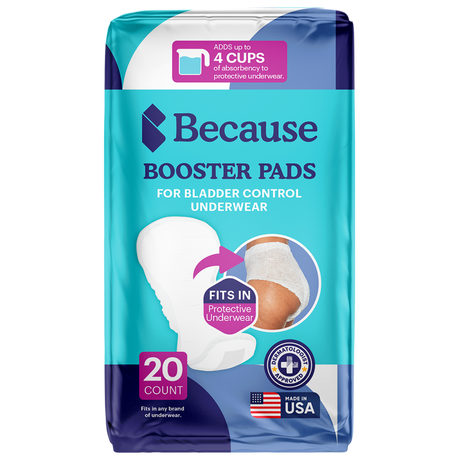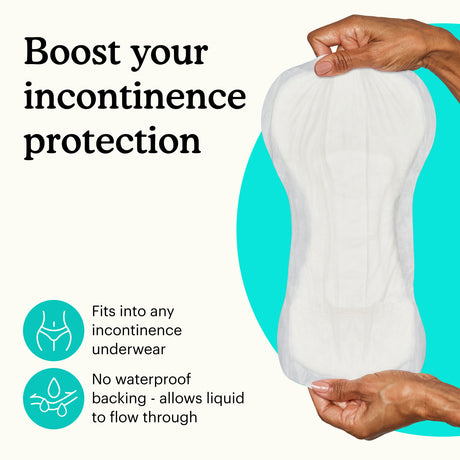Nearly half of all adults in the U.S. have high blood pressure or hypertension. If you’re one of them, you may know that you’re at a higher risk for heart disease, heart attack, or stroke, but you may be surprised to learn that hypertension can also lead to urinary problems. Read on to learn how hypertension can contribute to bladder problems and other urinary issues.
The Relationship Between High Blood Pressure and Urination
Blood pressure is the measure of the force of blood exerted on the walls of your blood vessels. A blood pressure reading consists of two measurements: the systolic pressure when your heart beats (the top number) and the diastolic pressure between heartbeats (the bottom number). A normal blood pressure consists of a systolic blood pressure less than 120 mm Hg and a diastolic blood pressure less than 80 mm Hg.
Hypertension happens when blood pressure levels are consistently higher than the normal range. Often, it occurs due to changes in the blood vessels, such as a hardening of the walls of the arteries or a build-up of plaque. These changes restrict blood flow, making it more difficult for it to circulate. As a result, blood pressure increases.
When left untreated, high blood pressure can damage blood vessels throughout the body, including those that deliver blood to the kidneys. If this happens, a person can develop chronic kidney disease, leading to problems producing urine that trigger fluid retention and other symptoms.
Your urinary system also impacts your blood pressure. When your bladder is full, it exerts pressure on the kidneys, and this in turn can raise blood pressure levels. Once you urinate, your blood pressure should return to normal.
People who can’t fully empty their bladders may be at an increased risk for high blood pressure. Called urinary retention, this problem can stem from a number of causes, such as benign prostatic hyperplasia (enlarged prostate) in men, obstructions in the bladder neck, and neurological problems like a previous spinal cord injury or multiple sclerosis (MS).
Kidney damage that affects urine production and output can also cause high blood pressure due to fluid retention. Untreated urinary tract infections (UTIs), diabetes, and other conditions can lead to reduced kidney function that can trigger hypertension.
Can High Blood Pressure Cause Bladder Problems?
Based on what we know from previous research, there does seem to be a link between high blood pressure and many bladder problems. However, further study is necessary to prove that there is a causal relationship between the two in many cases, as we’ll discuss in the next section.

Types of Bladder Problems Caused by Hypertension
Scientists are still conducting studies to explore the link between hypertension and various bladder issues. There are some things that we know for sure and others that require further investigation. Let's delve into what we know so far by exploring some of the potential bladder issues that high blood pressure may cause.
Frequent Urination and Incontinence
One bladder issue that can arise due to high blood pressure that has been well investigated is frequent urination. However, this problem doesn’t arise from the condition itself but rather from the medications used to control blood pressure. Specifically, the following classes of drugs for hypertension may increase urination:
- Alpha-agonist hypotensive agents like clonidine
- Diuretics, also known as water pills, like amiloride bumetanide, chlorthalidone, eplerenone, furosemide, hydrochlorothiazide, and spironolactone
- Selective alpha blockers like silodosin and tamsulosin
- Calcium channel blockers like amlodipine, diltiazem, felodipine, nifedipine, and verapamil
Increased urinary frequency caused by blood pressure medicines may contribute to some types of incontinence, such as:
- Stress incontinence: This form of incontinence happens when weak pelvic floor muscles are unable to properly support the bladder, leading to urine leakage when pressure is applied to the abdomen. If your body makes more urine due to medications, your bladder will become full more frequently, putting you at a greater risk for leaks due to stress incontinence.
- Overflow incontinence: This type of incontinence happens when the bladder doesn't empty fully, causing pressure to build up in the organ and urine to eventually become forced out. Greater urine production means the bladder will fill up more quickly and frequently, which can potentially worsen the condition.
- Functional incontinence: When you suffer from bladder leaks or loss of bladder control because you can’t make it to the bathroom in time, the problem is known as functional incontinence. It affects older people with mobility issues and individuals with disabilities. Blood pressure medications that boost urine production mean more trips to the toilet and a greater chance for accidents.
Overactive Bladder
Overactive bladder is a form of urge incontinence that happens when irregular contractions of the bladder walls cause a sudden urgent need to urinate and frequent urination. A 2022 study found that people who had overactive bladder were at a greater risk for having uncontrolled high blood pressure. However, more research is necessary to determine whether high blood pressure causes OAB or if something else explains the relationship.
Nocturia
Nocturia is when you get up to go to the bathroom more than one time at night. The condition can have a number of causes, and scientists are currently studying whether high blood pressure may be among them. One study conducted in Japan and published in 2021 proposes that increases in blood pressure due to excessive salt intake may cause frequent peeing at night. However, more research is necessary to investigate this link.
Blood in Urine
Blood in urine or hematuria can happen when small blood vessels rupture or become damaged, causing blood to enter urine. High blood pressure has the potential to damage these blood vessels. A large amount of blood in urine can make your pee appear pink, red, or brown. If there’s only a little blood in your urine, you may not be able to see it with the naked eye. However, it will show up in a urine test if your healthcare provider orders one. Keep in mind that blood in urine is also among the warning signs for other conditions like kidney disease.
Kidney Stones
Kidney stones are crystals that can be made up of uric acid, struvite, cystine, calcium oxalate, or calcium phosphate that grow in the kidneys. They can travel through the ureters into the bladder, causing lower urinary tract symptoms like severe pain and decreased urine flow. People with high blood pressure are more prone to developing kidney stones, but it’s unclear whether hypertension actually causes the stones to form.

Risk Factors for Developing Bladder Problems Due to High Blood Pressure
Various factors can make you more likely to develop bladder problems from high blood pressure. Read on to learn about them.
Age
Although high blood pressure can affect people of all ages, older adults and even some young children are more at risk. Often, high blood pressure causes no health complications or symptoms when it first occurs. It’s only over the long term that secondary problems develop. Since older people are more likely to have high blood pressure for longer, they’re more likely to develop bladder problems due to the condition.
Gender
Men are more likely than women to develop high blood pressure before the age of 55. Those who do are more likely to develop bladder problems because they have had higher blood pressure for longer. However, women may be at an increased risk for stress incontinence due to blood pressure medication, because childbirth and menopausal hormonal changes may have already weakened the pelvic floor muscles.
Genetics and Ethnicity
If a member of your family has high blood pressure, you’re at high risk for developing the condition. A family history of high blood pressure makes you more likely to get the condition in part due to genetics. However, the environment also plays a role, as family members often eat similar diets and share lifestyle habits.
Black people are generally more at risk for hypertension and complications from the condition than people of other races. Part of this may be due to genetic factors, but it may also be due in part to healthcare disparities that leave hypertension undetected.
Lifestyle Factors
Your risk of developing bladder problems, kidney problems, cardiovascular disease, and other problems due to blood pressure is higher if your blood pressure isn’t under control. Certain lifestyle choices can make it more difficult to control blood pressure, such as:
- Lack of exercise: People who don’t get enough physical activity are more likely to suffer from high blood pressure.
- Diet: Sodium increases blood pressure, so people who regularly have a higher than average salt intake are more at risk for hypertension. A lack of healthy eating habits and physical activity put you at a greater risk for obesity as well, and people with a higher body mass index are more at risk for both hypertension and some forms of incontinence.
- Caffeine use: Caffeine increases blood pressure levels and can also irritate the bladder, worsening incontinence and other issues.
- Alcohol consumption: Even drinking alcohol in moderation can negatively impact blood pressure while also irritating the bladder.
- Lack of hydration: Not drinking enough water and other fluids on a daily basis can lead to dehydration and cause urine to become more concentrated, increasing the risk of irritation that may worsen incontinence and other issues.
- Stress: Stress raises your blood pressure levels, and a lack of stress management can worsen hypertension.
- Smoking: Toxins in cigarette smoke can directly increase blood pressure and make fatty deposits that reduce blood supply and raise blood pressure.
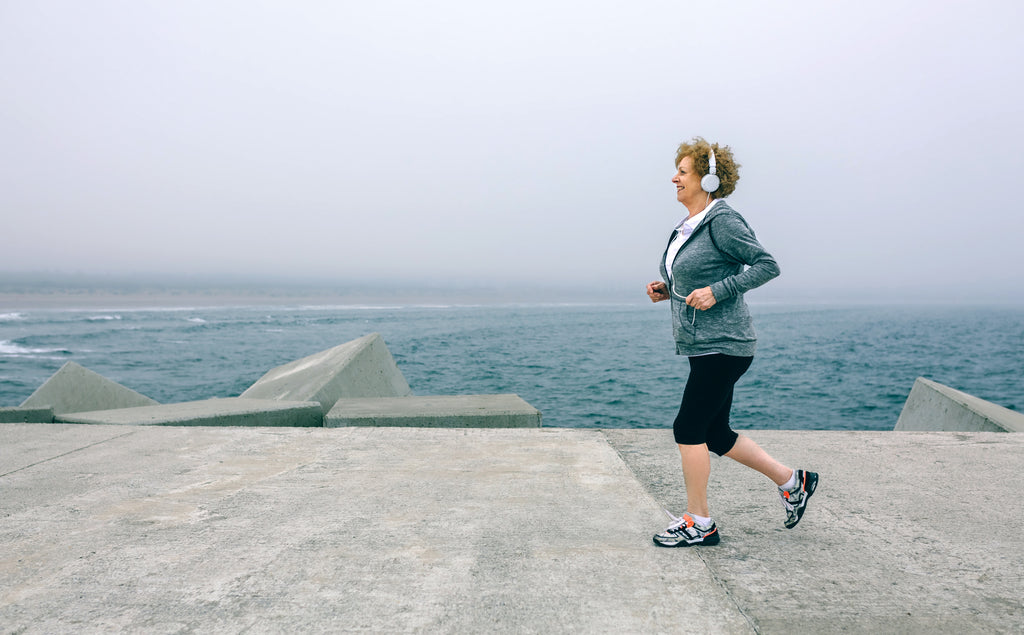
Prevention Tips for High Blood Pressure and Bladder Problems
The good news is that a healthy lifestyle can go a long way toward preventing high blood pressure and the potential bladder problems associated with it. If your blood pressure is elevated but not high enough to be diagnosed as hypertension, or if you have risk factors for the disease, doing the following may help lower your risk.
Dietary Changes
Making changes to your diet can reduce blood pressure and bladder problems. Your physician will likely suggest that you limit your intake of salt and soy sauce-based foods to lower your sodium levels. In addition, the American Heart Association and the National Heart, Lung, and Blood Institute recommend the DASH Diet for blood pressure control. It involves eating more fruits and vegetables, whole grains, low-fat dairy products, poultry, fish, nuts, and legumes, and limiting saturated fats and sugary foods.
What you eat and drink can also impact your bladder. Limiting your intake of bladder-irritating foods and drinks and staying hydrated may improve symptoms of urinary incontinence. Some things that can contribute to bladder inflammation include:
- Artificial sweeteners
- Alcohol
- Caffeine
- Citrus fruits
- Fatty foods
- Spicy foods
- Tomatoes and tomato-based foods
- Vinegar
Exercise
Regular exercise can improve blood pressure levels. The U.S. Centers for Disease Control and Prevention (CDC) advises that adults should exercise at least 150 minutes per week, with moderate-intensity activities like walking, or 75 minutes per week with vigorous activities like running.
A combination of a healthy diet and exercise can lead to weight loss to further improve your blood pressure and urinary health. In fact, losing just 5% to 10% of your body weight can significantly impact your health.
Lifestyle Changes
Making the following lifestyle changes can make a difference in your blood pressure levels and urinary health:
- Stop smoking
- Avoid alcohol
- Develop stress management strategies like taking breaks, employing deep breathing, or practicing yoga
You can also talk to your medical provider about whether a pumpkin seed supplement like Because Bladder Control Daily Supplement may benefit your bladder health.
Bladder Control Daily Supplement
Coping with Urinary Incontinence Related to Hypertension
If you have urinary incontinence due to blood pressure medication or another issue related to hypertension, you can manage the problem through a combination of bladder protection products and proper hygiene to feel more confident.
Bladder Protection Products
Bladder protection products like incontinence underwear and incontinence pads can absorb urine and help you stay dry. Choose products that are the right size and absorbency level for you. For minor leaks due to stress incontinence, moderate absorbency protection may be adequate. People with other types of bladder problems, including overflow incontinence and nocturia, may benefit from maximum absorbency and overnight bladder protection options.
Hygiene and Self-Care
To control odors and promote both healthy skin and bladder health, follow these hygiene tips:
- Change your incontinence pad or underwear promptly following leaks or an accident.
- Thoroughly cleanse your skin when you change your incontinence protection using a cleansing spray or incontinence wipes.
- Protect your skin from irritation by applying barrier cream after cleansing.
- Always wipe from front to back to reduce the risk of bacteria entering your urethra and causing a UTI.
- Wash your hands before and after you change your incontinence protection.
- Throw used bladder protection products away in disposal bags to keep conditions sanitary.

When to Call Your Doctor and Potential Treatment Options
Because high blood pressure often causes no symptoms when it first begins, you’re unlikely to know you have it unless you check your blood pressure regularly. Schedule checkups with your physician to monitor your blood pressure and consider purchasing a blood pressure machine to check your pressures at home. After all, early detection and treatment of hypertension can greatly reduce your risk of developing bladder issues, heart problems, or another medical condition due to high blood pressure.
Typically, treatment for high blood pressure includes medications, diet, exercise, and lifestyle changes. If the medication your doctor prescribes causes you to experience incontinence, let your healthcare provider know. They may be able to prescribe a different drug that is less likely to cause urinary side effects.
Anytime that you experience new urinary symptoms while undergoing treatment for high blood pressure, let your doctor know. Your medical provider can help you explore possible solutions and determine whether your symptoms may be a sign of a complication like kidney disease.
Do you suffer from incontinence related to hypertension? Take our bladder protection quiz and get a sample pack to try.
If you're struggling with incontinence, join one of our private support groups today!
Women's Incontinence Support Group
Men's Incontinence Support Group
Sources:
Centers for Disease Control and Prevention. (2021). High Blood Pressure Facts. Retrieved from https://www.cdc.gov/bloodpressure/facts.htm
Johnson, R. J., Lanaspa, M. A., & Roncal-Jimenez, C. A. (2021). A Guide to Eating and Drinking for High Blood Pressure. Cureus, 13(3), e13951. doi: 10.7759/cureus.13951. Retrieved from https://www.ncbi.nlm.nih.gov/pmc/articles/PMC8730485/
Oparil, S., & Acelajado, M. C. (2021). Managing hypertension in the post-COVID era. The Journal of Clinical Hypertension, 23(4), 617-619. doi: 10.1111/jch.14207. Retrieved from https://pubmed.ncbi.nlm.nih.gov/33654248/
University of Rochester Medical Center. (2021). High Blood Pressure. Retrieved from https://www.urmc.rochester.edu/encyclopedia/content.aspx?contenttypeid=56&contentid=2096
National Institute of Diabetes and Digestive and Kidney Diseases. (2021). High Blood Pressure and Kidney Disease. Retrieved from https://www.niddk.nih.gov/health-information/kidney-disease/high-blood-pressure
American Heart Association. (2021). Managing Blood Pressure with a Heart-Healthy Diet. Retrieved from https://www.heart.org/en/health-topics/high-blood-pressure/changes-you-can-make-to-manage-high-blood-pressure/managing-blood-pressure-with-a-heart-healthy-diet
National Heart, Lung, and Blood Institute. (n.d.). The DASH Eating Plan. Retrieved from https://www.nhlbi.nih.gov/education/dash-eating-plan
Centers for Disease Control and Prevention. (2021). Physical Activity Basics for Adults. Retrieved from https://www.cdc.gov/physicalactivity/basics/adults/index.htm
Centers for Disease Control and Prevention. (2021). Losing Weight. Retrieved from https://www.cdc.gov/healthyweight/losing_weight/index.html
